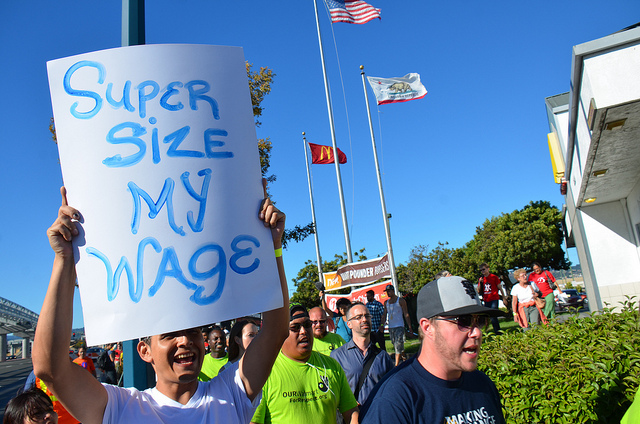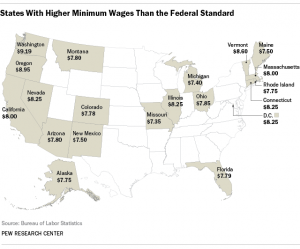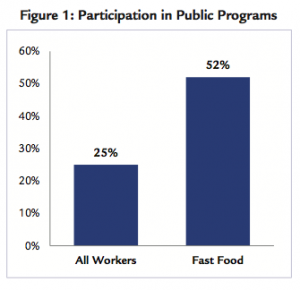
Fast-food workers at restaurants in more than 100 cities across the country, including Oakland and other East Bay cities, are walking off the the job today in a push for a major wage hike.
Backed by organized labor, the one-day actions are part of a year-old campaign to highlight the difficulties low-wage workers face in paying for basic living costs.
Following on the heels of similar protests last summer, demonstrators are demanding a wage of $15 an hour, a significant — though unlikely — raise from the current average fast-food industry wage of less than $9 an hour.

The campaign coincides with an effort by congressional Democrats pushing a bill to incrementally increase the federal minimum wage to $10.10 an hour from its current level of $7.25. But it has little chance of passing the Republican-controlled House, where many members oppose it as a job-killing measure. Supporters of wage hikes have had greater success on a state and local level, winning recent victories in New Jersey, California, New York, Connecticut and Rhode Island, all of which approved minimum wage increases this year.
In a recently released statement, the National Restaurant Association, an industry lobbying group, criticized today's demonstrations as little more than a political stunt "engineered by national labor groups where the vast majority of participants are activists and paid demonstrators." The group argues that throughout the recession and slow economic recovery, fast-food restaurants, many of which are locally-owned franchises, have consistently provided employment to hundreds of thousands of low-skilled workers. A dramatic increases in wages, it claims, would result in significant job cuts, increased automation, and more expensive meals for consumers.

